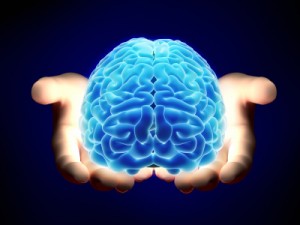What are cognitive abilities and skills, and can we boost them?
 What is cognition? Cognition has to do with how a person understands the world and acts in it. It is the set of mental abilities or processes that are part of nearly every human action while we are awake.
What is cognition? Cognition has to do with how a person understands the world and acts in it. It is the set of mental abilities or processes that are part of nearly every human action while we are awake.
Cognitive abilities are brain-based skills we need to carry out any task from the simplest to the most complex. They have more to do with the mechanisms of how we learn, remember, problem-solve, and pay attention, rather than with any actual knowledge. For instance, answering the telephone involves perception (hearing the ring tone), decision taking (answering or not), motor skill (lifting the receiver), language skills (talking and understanding language), social skills (interpreting tone of voice and interacting properly with another human being).
Cognitive abilities or skills are supported by specific neuronal networks. For instance memory skills rely mainly on parts of the temporal lobes and parts of the frontal lobes (behind the forehead). People with traumatic brain injuries can experience lower cognitive ability linked to compromised neuronal regions and networks (which is why neurorehabilitation is so important).
In the table below you can browse through the main brain functions involved in cognition. You will also find brain teasers that will help you exercise the cognitive abilities described — We hope you enjoy them!
COGNITIVE ABILITIES ARE BRAINS FUNCTIONS
| Cognitive Ability/Brain Function |
Skills involved |
| PERCEPTION | Recognition and interpretation of sensory stimuli (smell, touch, hearing…)
Brain teasers: |
| ATTENTION | Ability to sustain concentration on a particular object, action, or thought, and ability to manage competing demands in our environment.
Brain teasers: |
| MEMORY | Short-term/ working memory (limited storage), and Long-term memory (unlimited storage).
Brain teaser: |
| MOTOR SKILLS | Ability to mobilize our muscles and bodies, and ability to manipulate objects.
Brain teasers:
|
| LANGUAGE | Skills allowing us to translate sounds into words and generate verbal output.
Brain teaser: |
| VISUAL AND SPACIAL PROCESSING | Ability to process incoming visual stimuli, to understand spatial relationship between objects, and to visualize images and scenarios.
Brain teaser: |
| EXECUTIVE FUNCTIONS | Abilities that enable goal-oriented behavior, such as the ability to plan, and execute a goal. These include: Flexibility: the capacity for quickly switching to the appropriate mental mode. Theory of mind: insight into other people’s inner world, their plans, their likes and dislikes. Anticipation: prediction based on pattern recognition. Problem-solving: defining the problem in the right way to then generate solutions and pick the right one. Decision making: the ability to make decisions based on problem-solving, on incomplete information and on emotions (ours and others’). Working Memory: the capacity to hold and manipulate information “on-line” in real time. Emotional self-regulation: the ability to identify and manage one’s own emotions for good performance. Sequencing: the ability to break down complex actions into manageable units and prioritize them in the right order. Inhibition: the ability to withstand distraction, and internal urges. Brain teasers: |
.
COGNITIVE ABILITIES ARE NOT FIXED — WE CAN IMPROVE THEM VIA LIFESTYLE AND TARGETED PRACTICE
With age, some cognitive abilities tend to decline, especially executive functions  and those cognitive abilities that are not used regularly. Fortunately, growing evidence shows that decline can be delayed, and lower cognitive ability can be increased, with appropriate lifestyle options and practices. Here are some resources to guide you as you look for ways to boost your cognitive functions:
and those cognitive abilities that are not used regularly. Fortunately, growing evidence shows that decline can be delayed, and lower cognitive ability can be increased, with appropriate lifestyle options and practices. Here are some resources to guide you as you look for ways to boost your cognitive functions:
- Solving the Brain Fitness Puzzle Is the Key to Self-Empowered Aging
- Brain Training Evaluation Checklist
- Brain fitness tips to improve concentration and memory
- Brain teasers to flex two key mental muscles: attention and working memory
- Book: The SharpBrains Guide to Brain Fitness: How to Optimize Brain Health and Performance at Any Age

An interesting list. However, the definitive cognitive abilities taxonomy is now widely considered to be the Horn-Cattell Gf-Gc or Cattell-Horn-Catell (CHC) theory of cognitive abilities. It is a hierarchical taxonomy of cognitive abilities that includes general intelligence (g) at the top, 8–10 broad abilities at the next stratum, and 50+ specialized narrow cognitive abilities. It is widely accepted as the most empirically solid psychometric formulation of a taxonomy of human cognitive abilities. More information can be found at:
http://www.iapsych.com/CHCPP/CHCPP.html
Updated information can be found at IQs Corner (www.intelligencetesting.blogspot.com).
Kevin (the web/blogmaster for these two URLs)
thank u for the info, really helps a lot
Thanks Kevin, we are trying to create a user-friendly list for non-experts, not redefine academic categories. Many neuropsychologists focus on other dimensions rather than the construct “g”. We will review the materials you suggest, and happy to refine as needed. Thanks
Is a diagnosis of legally blind a diminishment of cognitive abilities?
If so how many cognitive abilities are decreased in the absence of other problems?
Thank you for the information.